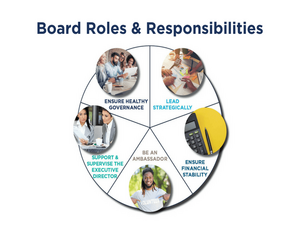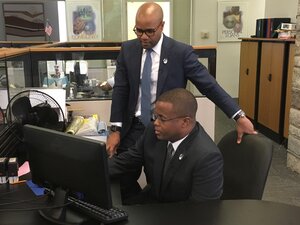Course Overview
According to the overarching plan of the board, the managing director/chief executive is in charge of the company’s success.
The Managing Director (MD) is accountable for creating, developing, and carrying out the company’s strategic plan as well as managing its day-to-day operations in the most time- and money-efficient way possible.
The Role of the Managing Director course is made to give you the skills and information needed to perform this important and challenging post. Through participation, you will learn how to interact with the organization’s larger corporate objectives, ensuring that the associated marketing strategies are in line with those of the bigger picture.
The course will cover the essential management competencies, including visionary leadership Developing great financial acumen can help you become a more effective director, as will planning, forecasting, and the capacity to inspire a workforce.



Course Outcome
With the help of this comprehensive one-day training, you may learn about the duties and obligations of the managing director in practice. Our knowledgeable course instructors will impart the most recent best practices in strategic leadership, as well as advice on accountability, authority, and restrictions, whether you are freshly appointed or trying to improve your performance.
You can access this course from any location and learn practical skills and information thanks to its interactive online delivery. It was created by directors for directors and promotes peer learning to help you connect and gain from practical experiences.
Our instructors are accomplished professionals with remarkable real-world expertise in governance, strategy, leadership, and finance.
Organisational Benefits
- Gain from educating your staff about the definition and significance of board effectiveness in businesses, especially if it has any bearing on the main goals, values, mission, and vision of your company.
- Concentrate and target your efforts on the protocol and practices of the Board of Directors.
- By ensuring a connection between the board and operational employees, the business may strengthen its synergy, which will raise employee morale and boost productivity.
- Critically evaluate your organizational capabilities in terms of conformity with the aforementioned principles by conducting a gap analysis and performance audit.
Personal Benefits
- Enhance your performance through increased productivity and enhanced communication with your operational personnel by becoming aware of the effects and long-term benefits of adhering to board norms and procedures.
- Understanding the Board Practice Principles
- Participate in productive discussions about the subject to enhance organizational capability and communication in general.
- Put your knowledge about the effects of board effectiveness in your organization’s context and integrate it.
- Demonstrate knowledge of and comprehension of the key tenets governing the execution of board effectiveness. Training
- Recognize the many individuals, institutions, and organizations that interact with the Board of Directors in an organization, as well as their roles, functions, and responsibilities.
- Determine and assess the primary flaws that contribute to your organization’s board’s inefficiency.
Governance and Board Development Training Highlights
Training Feedback
Happy Customers
Course Outline
Exploring the roles and responsibilities of the Managing Director
- The MD’s responsibility for determining the course of the company
- Organizational development and performance management
- statutory requirements and government
- financial mastery
- Process and quality improvement
- both marketing and public relations
- establishing the organization’s goals and mission
- Developing a corporate strategy or plan
- participating in the creation of operational and functional plans with the management team
- putting the company strategy into practice
Developing Effective Systems
- Establishing and monitoring KPIs
- Designing organizations and creating high-performing teams
- building a foundation for performance management
- Process improvement and quality management
Building financial control
- Creating a deliverable budget and conducting stress tests and scenario planning
- Establishing and overseeing financial goals
- Analysis of variance and reforecasting
- Establishing financial norms and procedures and increasing organizational awareness of finances
Managing in a Changing Climate
- Recognizing the environment outside of oneself
- Developing a competitive edge through horizon scanning
- The importance of leadership thought in organizations and in public relations
Acting on Crisis Management
- Managing risks and striking a balance between preventive and corrective measures
- Planning for business continuity and disaster recovery
- Addressing a crisis
- Managing the media
The Digital Age’s Leadership Environment
- The effects of the Fourth Industrial Revolution on business
- The evolving characteristics of a successful leader
- Methods for innovation and taking into account new technology
- Managing your teams’ and the Board’s relationships in an unpredictable world
Program Objectives
- Comprehend the MD’s function and how it relates to the board’s goals.
- Describe how the MD leads and motivates the organization, defines and communicates company strategy, and manages change.
- Juggle the duties of overseeing operations and formulating business strategy.
Who Should Attend
- Senior marketing directors or managers
- Relationship managers and
- Customer relationship managers
- Professionals in customer service, supervisors,
- Team leaders, and managers
- Sales experts, salespeople, and sales analysts
- Entrepreneurs and founders of startups
Trainers Available for:
- In-House Trainings
- Online Training
- 2 Hours Crush Program
- Half Day Program
- One Day Program
- Two Days Full Program
Training Techniques
- Power point Presentations
- Engaging conversations
- Case studies
- Exercises in solving problems
- Focus Group Conversations
- Games in Management
- Skits and modeling the part
Request a Quote

